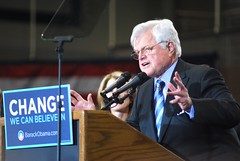| 9637109004 | refute | Prove to be false. |  | 0 |
| 9637109005 | rhetoric | The art of using language effectively and persuasively. |  | 1 |
| 9637109006 | repetition | A technique in which a sound, word, phrase, or line is repeated for emphasis or unity. |  | 2 |
| 9637109007 | rhetorical question | A question asked merely for rhetorical effect and not requiring an answer since it is already understood. |  | 3 |
| 9637109008 | satire | A literary work that criticizes human misconduct and ridicules vices, stupidities, and follies. |  | 4 |
| 9637109009 | symbol | A thing that represents or stands for something else. |  | 5 |
| 9637109010 | speaker | A person who delivers/writes a text for an audience. |  | 6 |
| 9637109011 | subject | In rhetoric, the topic addressed in a piece of writing. |  | 7 |
| 9637109012 | synecdoche | A figure of speech in which a part is made to represent the whole or vice versa. |  | 8 |
| 9637109013 | syllogism | A form of deductive reasoning consisting of a major premise, a minor premise, and a conclusion (ex: All trees that lose their leaves are deciduous. Maple trees lose their leaves. Maple trees are deciduous). |  | 9 |
| 9637109014 | syntax | Sentence structure; the way words are arranged (Ex: The blue sky beckoned her. vs. She was beckoned by the blue sky.). |  | 10 |
| 9637109015 | seminal | Original, ground-breaking, important. |  | 11 |
| 9637109016 | simile | A comparison of two things using "like", "as", or "than". |  | 12 |
| 9637109017 | stream of consciousness | A style of writing in which the author tries to reproduce the random flow of thoughts in the human mind. |  | 13 |
| 9637109018 | soliloquy | A dramatic or literary form of discourse in which a character talks to himself or herself or reveals his or her thoughts without addressing a listener. |  | 14 |
| 9637109019 | synesthesia | Describing one kind of sensation in terms of another ("a loud color", "a sweet sound", "taste the pain"); stimulation of one sensory or cognitive pathway leads to automatic, involuntary experiences in a second sensory or cognitive pathway. |  | 15 |
| 9637109020 | Paraleipsis | An apparent omission by which a speaker artfully pretends to pass by what he really emphasizes; pretending to say nothing about something one goes on to say quite a bit about ("I need not mention", "I really shouldn't say"). |  | 16 |
AP English Language terms "R"-"S" Flashcards
Primary tabs
Need Help?
We hope your visit has been a productive one. If you're having any problems, or would like to give some feedback, we'd love to hear from you.
For general help, questions, and suggestions, try our dedicated support forums.
If you need to contact the Course-Notes.Org web experience team, please use our contact form.
Need Notes?
While we strive to provide the most comprehensive notes for as many high school textbooks as possible, there are certainly going to be some that we miss. Drop us a note and let us know which textbooks you need. Be sure to include which edition of the textbook you are using! If we see enough demand, we'll do whatever we can to get those notes up on the site for you!

